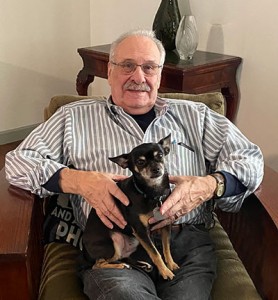
Stopping Drinking On Your Own
It is possible to stop drinking on your own. Indeed, most people either st op or moderate their alcohol consumption on their own and that’s the first “step” you need to keep in mind.
Having said that, and being a person who did that on my own some 35 years ago, I will also say that it is much easier with a little short term, confidential, individual and experienced support and information. What took me – and possibly you – three years shouldn’t really take more than three months.
Yes, it took me three years of stumbling around to collect the information, experiment with approaches, assimilate the changes, and leave my problems with alcohol behind.
It all started with my self-assurance that if my only two choices were being a drunk and joining AA I’d rather be a drunk. I know many of you agree. Happily there are many choices and it will help to know that the research, as summarized in Hester and Miller’s Handbook of Alcoholism Treatment Approaches, shows that in terms of effectiveness, AA based treatment ranks 36th, and AA 38th. Obviously you would not voluntarily bet on a “cure” that came in at those positions in the race.
So what does “work’?
#1: Brief “intervention” which is pretty much taking a bit of time to reflect and gather information. I hope that is what you are doing now and what brought you here.
After that the effective tools are such approaches as Cognitive Behavioral Therapy (CBT), Motivational Enhancement, Naltrexone, Assertiveness Training, and so on. With clients, I help create a mosaic of approaches and tools which make the changes easier.
Given my “Stopping Drinking on Your Own” title I imagine you are wondering why I do suggest the “brief intervention” and the assorted approaches which seem to imply hiring some help.
Given the information I have provided you can make some shortcuts and fix things “all-by-selfy” as my daughter insisted when she was 2 years old. And you can. The questions are: how much time and effort do you want to spend and how much support do you need fending off others who “know” that AA and Rehab are the only things that work – even though, as Miller and Hester did, that they don’t work at all. In fact, doing nothing works better than either AA or rehab-as-usual.
There are a couple of other points to what I offer. It’s damn lonely out there trying to work your way alone. It’s also helpful to learn the new coping skills relatively quickly whether it’s internalizing CBT and learning to be more assertive.
There is also the factor of “putting your money where your mouth is” with regard to actually doing something. It’s very easy to procrastinate and defer actually fixing the problem by telling ourselves that reading about stopping or moderating is “doing something.” It isn’t. Nor is going to a therapist and talking about doing something – which frequently goes on for years with no change of behavior.
Imagine going to a local gym to lose weight. You can go and watch and complain that nothing happened. You can hire a trainer to demonstrate while you sit and then complain that the trainer wasn’t any good. You can finally hire a short term trainer to teach you what you need to do and change, you follow instructions as a personal plan evolves, and guess what? You lose the weight.
That’s what I do – I help you generate a personal plan and get you started and after two or three months you don’t need me anymore. And you won’t waste years in the personal purgatory of “in recovery” – you will have recovered, just like ex-smokers have (yes, I’m one of those too).
But, if nothing else, this page should have let you know that you can recover, you don’t need meetings or steps or sponsors. You don’t need to allow yourself to be demeaned, publically humiliated, labeled and exploited.
So, what’s your choice?
“Leaving AA”
Many people wonder about leaving AA and some do. It’s usually a process filled with uncertainty caused by the brainwashing that accompanies membership in any cult. As a result, most people continue to attend pointless “meetings” long past any useful reason.
To understand how this happens it’s helpful to understand a bit more about alcohol and a lot more about groups. The alcohol part is straightforward: in addition to being a depressant, alcohol is also a regressant – meaning that it causes us to function at a more immature emotional and psychological level. In short, alcohol can reduce us to a pre-adolescent level where AA and other cults “work”. (For a detailed description see my “Guide to AA: Who it Helps, Who it Harms, Who it Kills & Why.”)
However, once you stop drinking on a regular basis your functional age begins to rebound to a normal level of maturity where cult membership is neither required nor desired. Unhappily, by the time this happens – usually 4 months to a year – people have been so brainwashed, demeaned, diminished, humiliated, abused and exploited that they are terrified of leaving.
Consider this in comparison to SMART Recovery where it is assumed that you will outgrow your need for a support group within a year.
Also consider ex-smokers (and nicotine is far more addictive than alcohol) who skip the group experience altogether, endure the temporary discomfort, skip labeling themselves, refuse to count months, weeks, days, hours and minutes, and simply say, “I kicked the habit.”
Most people who want to leave AA also say that they would miss the “fellowship” or friends or whatever passes for a community. This overlooks the fact that most ardent Steppers lack the maturity necessary for any real intimacy or other significant relationships.
But, you say, I need/want a support group!
Fine. Use SMART Recovery as a transition while you develop a real support system, one that enhances you and your life, not one that demeans and diminishes.
“How do you do that?” is a reasonable question.
Think about an activity you enjoy, or think you might enjoy, which is incompatible with drinking, whose members have no knowledge of your drinking history nor any interest in it, and find either a group that you can join or create one. Readers do this with book clubs not all of which of chardonnay societies. Hikers and bikers do. In lieu of groups, sign up for classes at the local college, extension, or adult school in subjects that might be of interest whether pottery, photography, painting, writing, or???? There is also community service from Habitat for Humanity to local restoration services.
In short, any activity which can be developed along with your connections with other people – connections based on doing stuff.
See the difference? No? AA is a group focused on NOT DRINKING! Excuse me, but you do not build a life on not doing anything. You build one on what you do.
In this framework problem drinking simply becomes another of those “been there, done that” activities that are no longer of interest beyond the occasional twinge of nostalgia or “what might have been” fear.
Yes, I have plenty of those. I’ve given up vodka, cigarettes, motorcycles, commercial salmon fishing, Alaskan winters, rock climbing, and drinking two dozen cups of coffee a day. I miss them all from time to time but I am thankful to have survived them too – and to be living a life that is fun, interesting and contains elements of both new and old.
In closing I will relate a call I received at the office one evening when I was working late:
“Good evening, this is Dr. Wilson. How may I help you?”
“Hello. I just wanted to call and say I was reading you website and liked what I r ead.”
“You have an alcohol problem?”
“Oh no. I went to AA 20 years ago and stopped drinking.”
“So?”
“I called to say that you’re right about AA. I was one of those conscientious members. Found space. Showed up early, set6 up chairs, made coffee. Then I stayed late to clean up and put everything away.”
“And?”
“After about ten years I had just finished clearing up, everyone else was long gone of course, having a cigarette and found myself saying to myself, ‘why are you doing this? You haven’t had a drinking problem in over a decade and you don’t even like these people!’”
“Your answer?”
“I’m done with AA and any ‘meetings’ I attend will involve things I like to do!”
“Such as?”
“Sex! I really like sex.”
“So?”
“Gave a whole new meaning to 90 meetings in 90 days.”
“Life is good?”
“A hell of a lot better than it ever was in AA.”
“Mind if I put your story in my newsletter some day?”
“No. And Doc? If you’re ever in ——- feel free to give me a call.”
Your interests may, or may not, be different, but the message is the same, “get a grip, get a life, get outta AA.”
Alternatives to AA
Get Our Free Newsletter – Sign Up Today.
We don’t like spam either, so we never, ever, release your email address to anybody for any reason. We hold all your information in the strictest confidence.


Ed Wilson, PhD
Phoebe and I are sitting back, awaiting your call, 9:00 a.m. – 3:00 p.m. Eastern Time.
Picture me forty years ago, looking for ways out of my own alcohol-related problems and having nowhere to turn but the same failed programs that still exist today. I knew then, as many of you have told me since, if my only two options were AA and continuing to drink, I’d continue to drink. There was a lot more dignity in drinking than there was in being a Stepper.
Happily, I also knew that AA was a trap and that there were methods that actually worked and that wouldn’t lead me into the “dry drunk’s” purgatory of “in recovery.”
The problem? It took me 3 years to sift through the options and assemble the components that would allow me to lead a life free of alcohol abuse. It shouldn’t have taken me that long, and wouldn’t have if any real short-term help had been available.
That help wasn’t available then, but it is now and I have been providing it in various formats for over four decades. Now I can help almost anyone, anywhere, through the internet with Zoom technology which allows you individual, confidential and effective short-term help.
Call me to discuss how I might be able to assist you in regaining control without losing yourself to an abusive, exploitive and life-diminishing cult.

